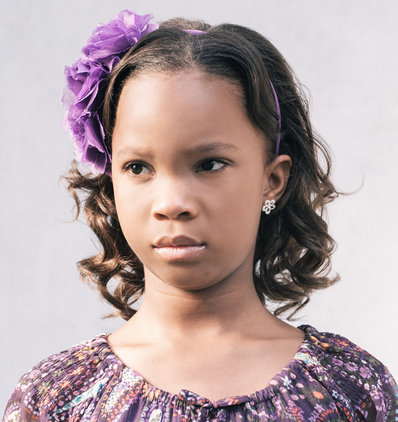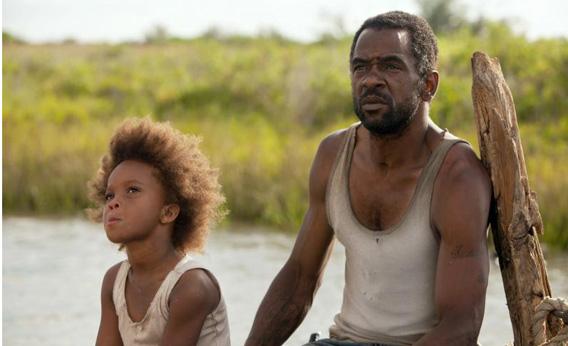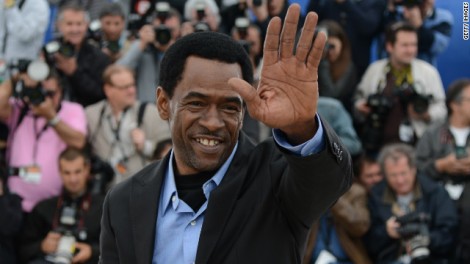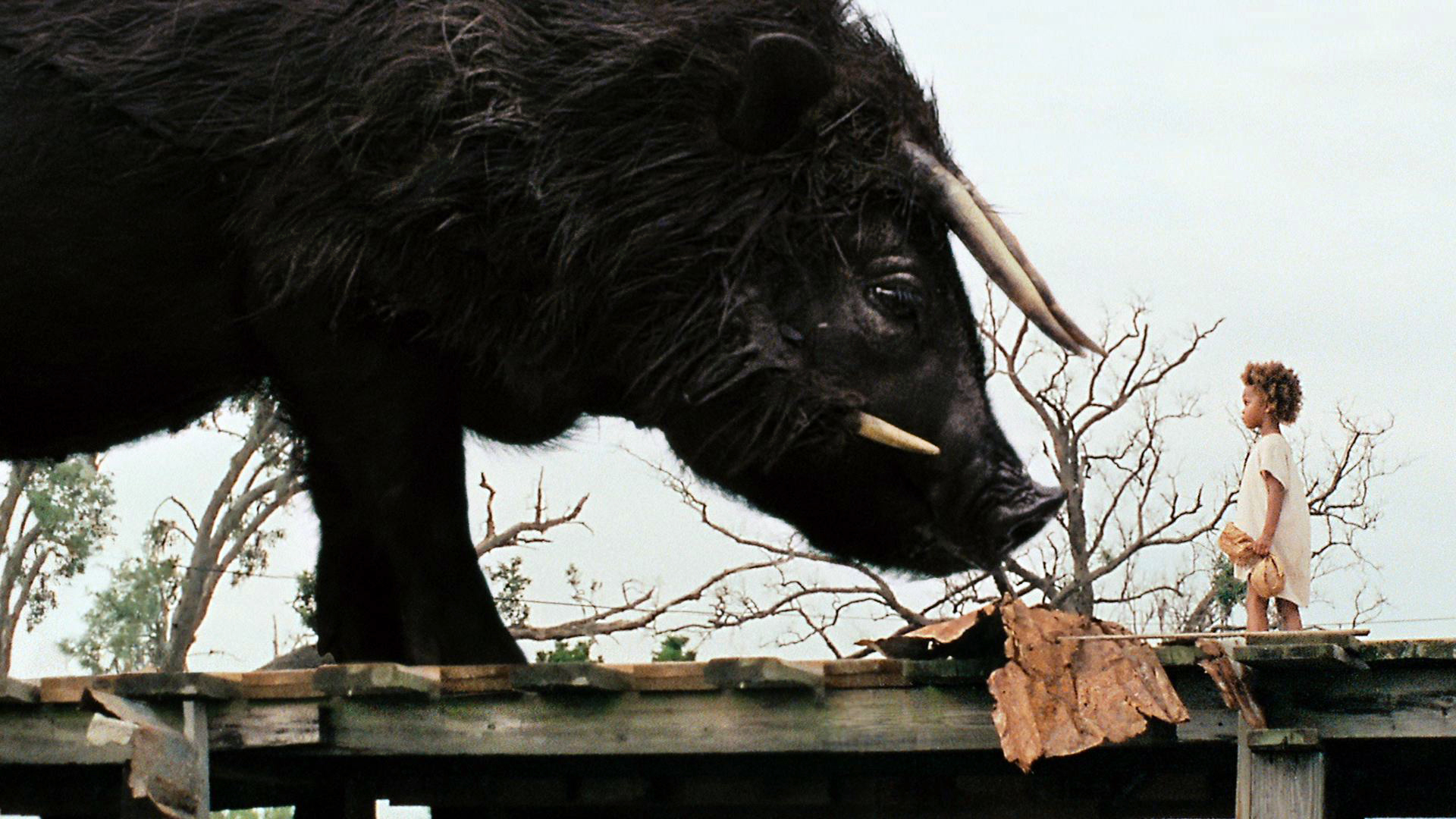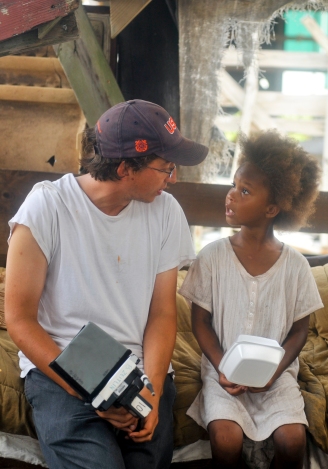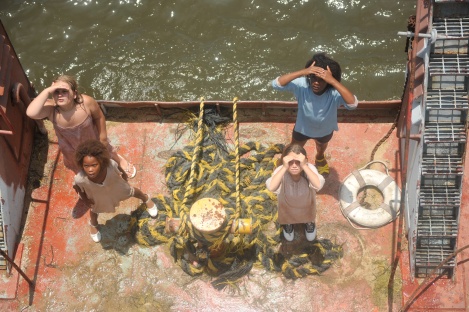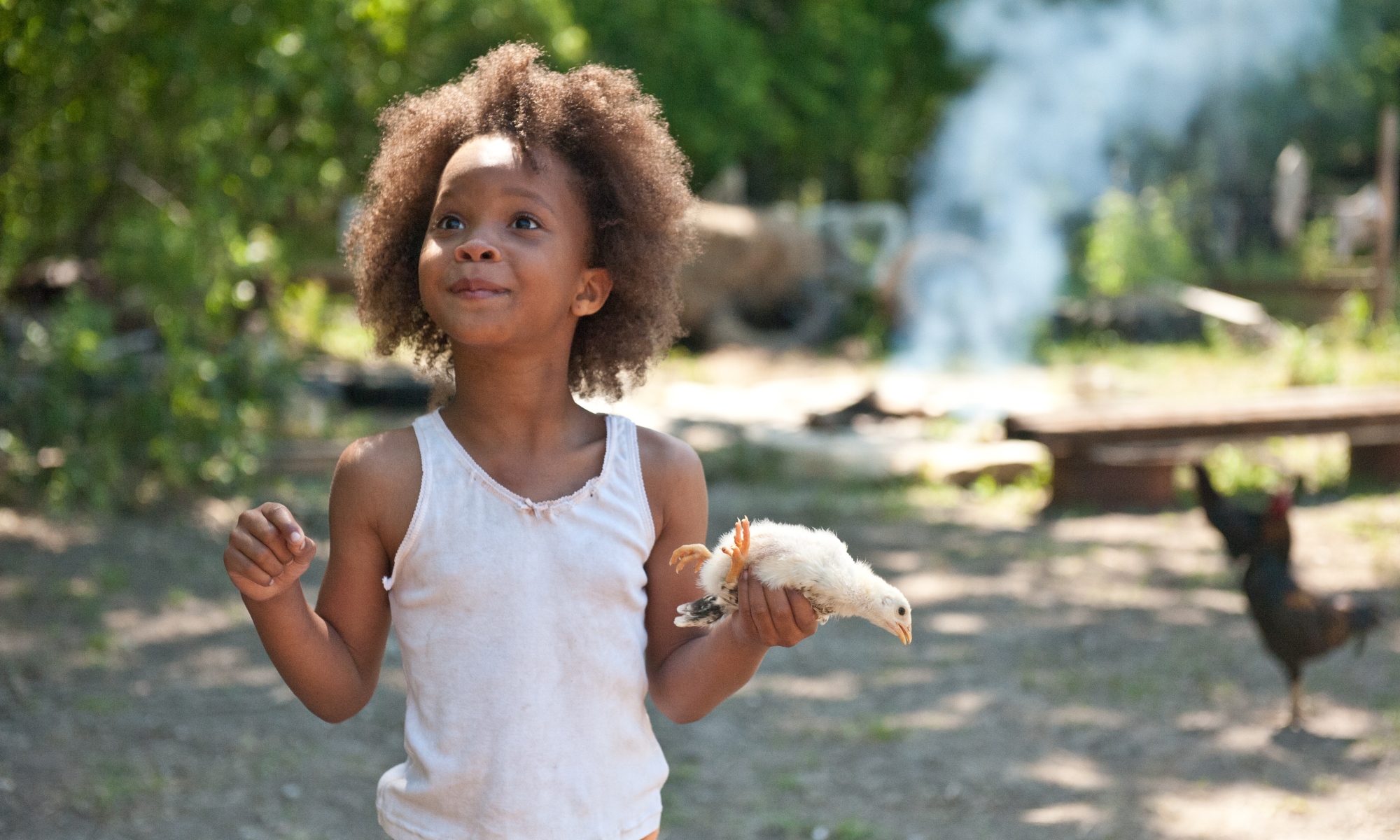Looking back at her audition for the lead role of Hushpuppy in Beasts of the Southern Wild, Quvenzhané Wallis is able to put it all in perspective. “If you are a 5-year-old, you just go ahead and try something,” she observes. “You don’t think about it. You are just a little kid.”
Of course, she’s older and wiser now. She’s 9.
Today, Wallis, pretty in pink sequins and skinny jeans, is offering this thoughtful career overview in the elegant lobby of the Four Seasons Hotel in Beverly Hills. Her mom, Qulyndreia Wallis, is seated on a nearby sofa, but young Wallis fields questions about her first acting role all by herself.
In a way, however, both of Quvenzhané’s parents are with her every time someone speaks her unusual first name (pronounced Kwe-VAWN-zhan-ay). The first part combines elements of her teacher mother’s first name, Qulyndreia, and her truck driver father’s first name, Venjie. Her mother says that Zhané is the Swahili word for “fairy,” although no direct translation can be found on an Internet search. Qulyndreia Wallis says her own name means “to you with love.” The rest of the kids include Venjie Jr., 15; brother Vejon, 13; and sister Qunyquekya, 19.
Close friends, family, and her Beasts colleagues call her “Nazie,” but her mother doesn’t like to see it in the press because “I feel that if it’s out there so much, they drop Quvenzhané because it’s easy to go to Nazie.”
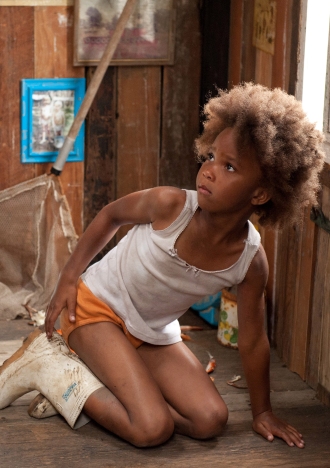
On the Oscar campaign trail to promote Beasts, Wallis, who loves math and hates writing, often finds herself far away from her life as a fourth-grader in Houma, LA, about 50 miles outside of New Orleans. The Big Easy is the home of Court 13 Productions and independent filmmaker Benh Zeitlin, director of Beasts, his first feature. Beasts—inspired by Zeitlin’s short film Glory of the Sea and based on Lucy Alibar’s play Juicy and Delicious —premiered at the 2012 Sundance Film Festival and won the festival’s Grand Jury Prize.
Oscar is buzzing—and already Wallis, who plays a brave little girl trying to save her ailing father, her close-knit bayou community, and herself during a violent hurricane, has picked up the Hollywood Awards’ New Hollywood Award.
After one movie, the Quvenzhané Wallis Acting Method remains pretty simple (in fact, some pros would do well to take notes): Director Zeitlin, she says, would tell her: “This is what you really need to be focused (on); you need to listen to this, you don’t have to listen to that. There was important stuff and not-important stuff. And then try it twice. And then do the real one about five times.”
Zeitlin says the key to coaxing Wallis into playing the film’s harrowing storm scenes was to make the whole thing feel like a game. “We tried to shelter her from the panic of a film set. We always tried to maintain energy on the set that a 5-year-old would want to be part of,” Zeitlin explains.
Getting the part was a game to her, too. “My mom’s friend called and said they were having auditions for 6- to 9-year-olds,” Wallis recounts. “My mom said, ‘She’s too young,’ and then she just hung up the phone and said, ‘Do you want to go to auditions?’ So we just tried it, and it worked. Because when you are a little kid you are bored all the time, and it’s like, OK, let’s go! It’s kind of good to do things while you’re young,’’ she adds, very seriously.
And what’s it like to watch the movie now? ‘’It’s kind of weird, because you see a bigger you,’’ she muses. ‘’And then you look at yourself, and you think, ‘Why am I so much smaller than the real one up there?’ And then you look at yourself and go, ‘Wait, I’m the real one!’ ’’
Wallis is equally enthusiastic about her fellow castmates, except one: The pig. She’s not talking about the cute, 20- to 30-pound potbellied pigs that were made up to look like the herd of giant prehistoric Aurochs that plague Hushpuppy’s dreams. No, this was a very large Vietnamese potbellied pig owned by Zeitlin, part of the menagerie of critters on Hushpuppy’s property. The pig plays himself in the movie.
The hardest thing was “when I had to touch the pig. I wouldn’t do that because he was Big. Black. Hairy. And. Different,” she says, pausing dramatically between each word. “It was so big, and I was so small, and I knew what it could do to me.” During filming, however, she came to love the pig, and would actually ride him around the set (she explains that now she’s too grown up for that). “We got to be best friends,” she says.
The only thing Wallis doesn’t have much to say about is her future acting career. “Um, I don’t know, really,” she offers shyly. That’s when Mom jumps in. “We just stumbled upon the industry with the blessing that’s been given us,” Qulyndreia Wallis says. “She had no clue what an Oscar was. I take her, and I show her and say, ‘This is what they’re talking about.’ ” She waves a hand at the posh surroundings of the Four Seasons. “All this is nice, but we have to stay focused on reality.”

